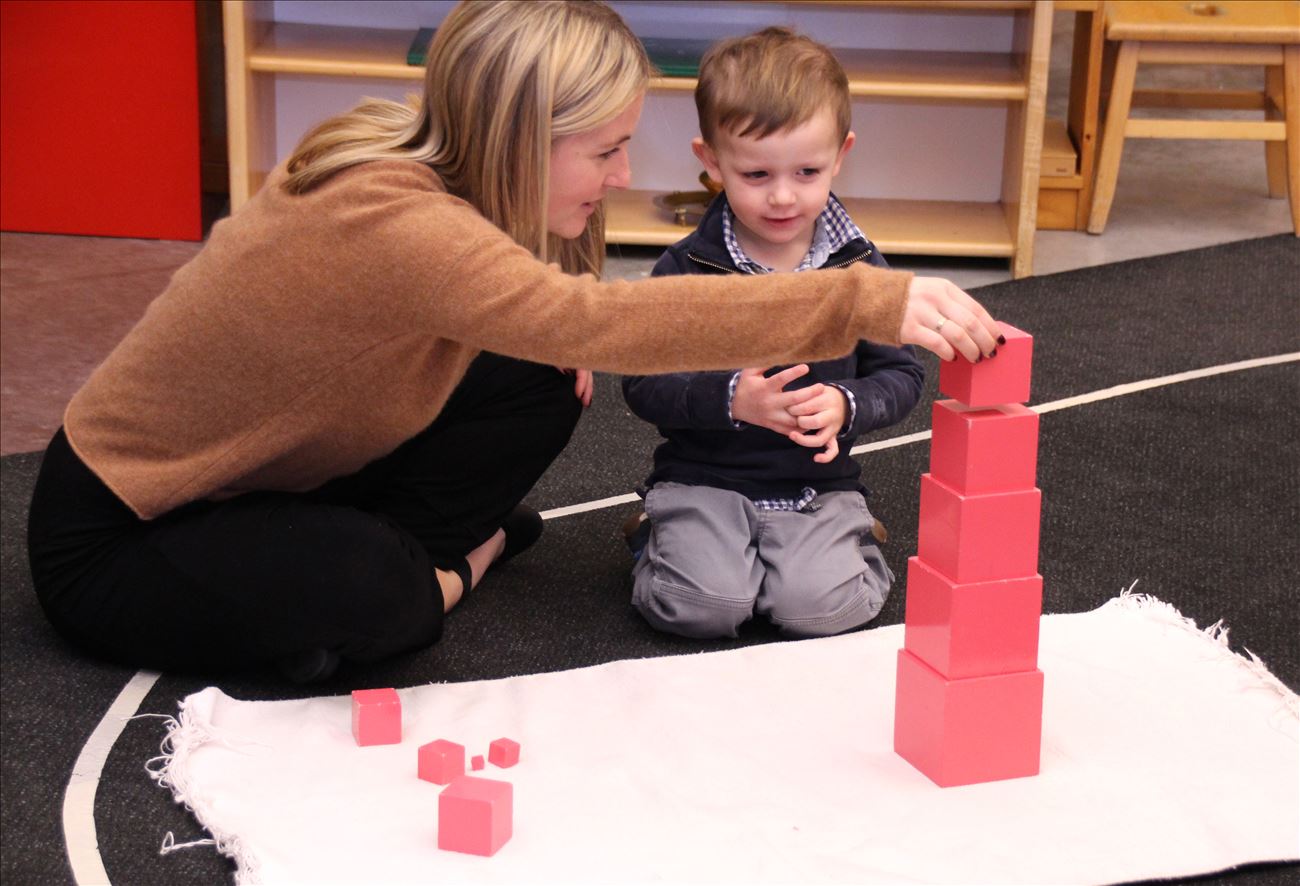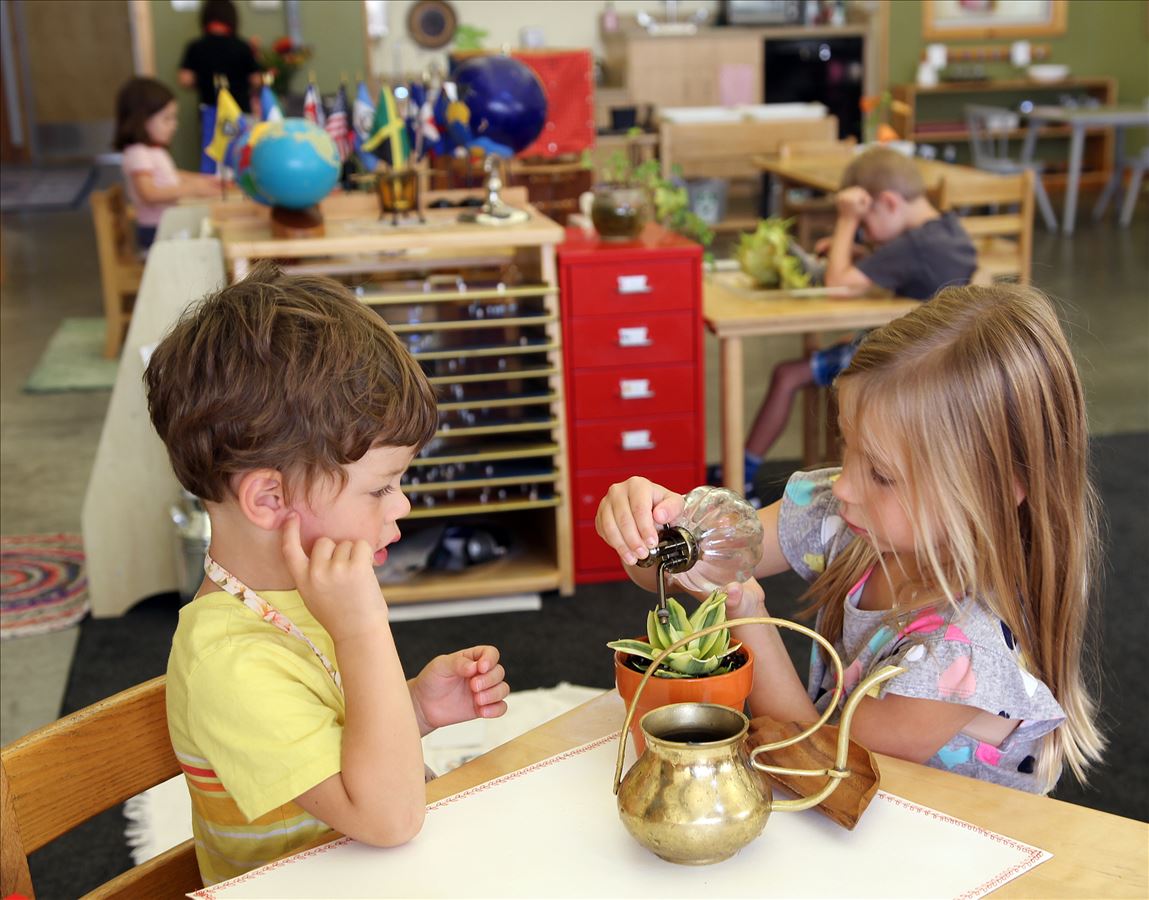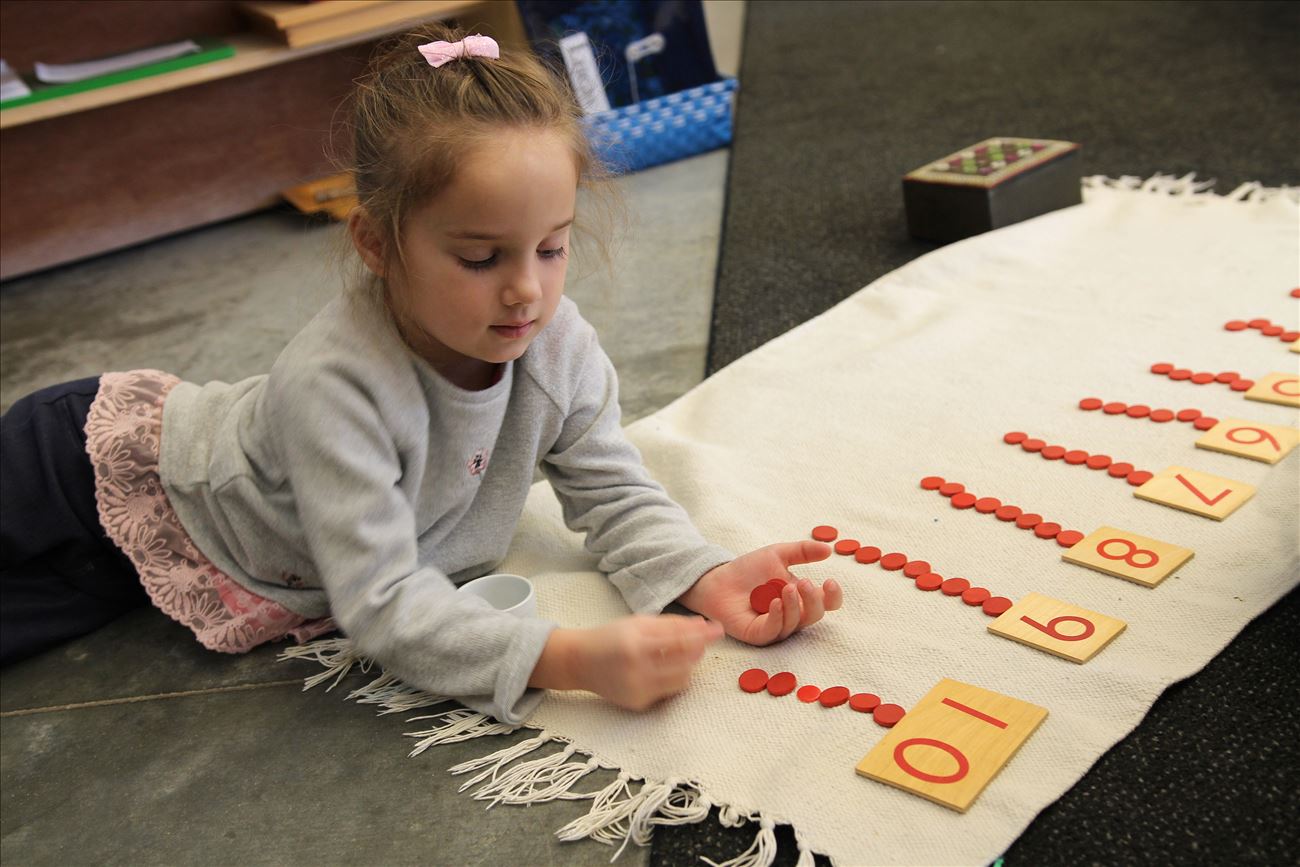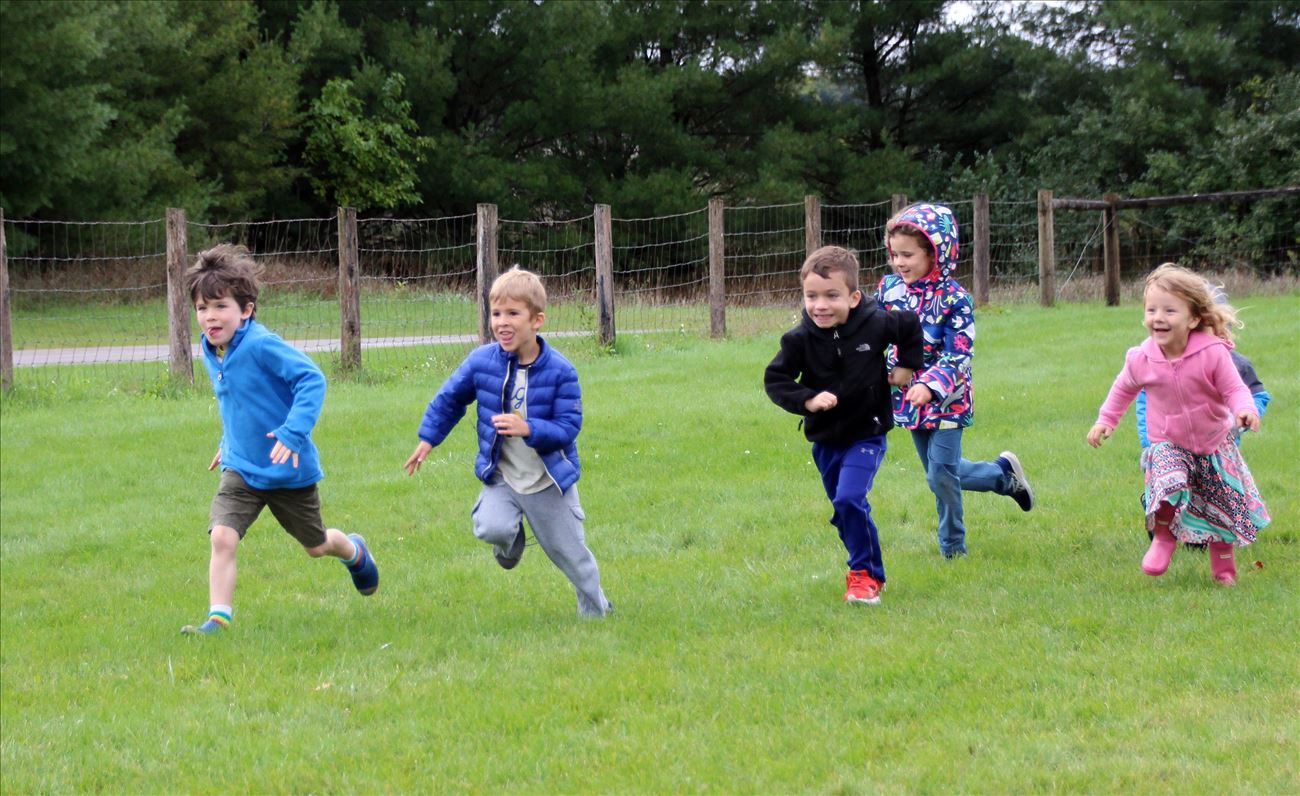 The Primary program at The Children’s House is a curricular cycle for children approximately three to six years old. Each multi-age Primary classroom includes a trained Montessori teacher (or “guide”) and assistants. The emphasis in this classroom setting centers around independent work, movement, grace and courtesy, healthy living, and the introduction to basic reading, writing, cultural studies, and mathematics. Children entering this program must display impulse control, take verbal direction, and be out of diapers.
The Primary program at The Children’s House is a curricular cycle for children approximately three to six years old. Each multi-age Primary classroom includes a trained Montessori teacher (or “guide”) and assistants. The emphasis in this classroom setting centers around independent work, movement, grace and courtesy, healthy living, and the introduction to basic reading, writing, cultural studies, and mathematics. Children entering this program must display impulse control, take verbal direction, and be out of diapers.
Kindergarten is the culminating year of the Primary program. During this year the child has additional privileges and responsibilities, as they are the oldest members of their classroom community.
Montessori believed that young children had a distinct receptivity for new information during the ages of infant to six years, a period of childhood development she called “the absorbent mind.” Classroom guides in this program are trained to offer children “keys to the world” through presentations on concrete classroom materials. The materials are then available to the children for self-directed, purposeful activity as they repeat and practice skills. Lessons are presented in the following areas:
 Practical Life
Practical Life
The carefully prepared work of practical life includes meaningful activities that help children care for themselves and their environment. Lessons such as carrying, polishing, hand-washing, fastening clothes, plant care, and pouring aid children on their paths to independence. These activities also offer them experiences with concentration and repetition while working on meaningful tasks as they refine their large and fine-motor skills.
Sensorial
Children in the primary environment absorb information through their senses. All of the hands-on materials in the sensorial area of the classroom are designed to isolate sound, taste, texture and/or shape, which gives students experiences to refine their senses. Practice with sensorial materials also entices the children to learn descriptive vocabulary and to prepare for the exercise of writing.
Language
Activities in language begin on a child’s first day in the classroom. At first, the focus is on spoken language, listening to stories, singing songs, and learning descriptive words for objects in the environment. Experience with a variety of small group activities such as storytelling, poetry, sound identification, and lessons of grace and courtesy are ongoing for every child. Practice with letter sounds and eventually reading and writing, gradually follow. The language-rich primary classroom offers constant opportunity for conversation where children learn how to communicate based on the premise of mutual respect.
Math
The Montessori math curriculum finds its foundation on the universal human tendency of exploration. Much like language that relates information about ideas, surroundings and feelings, mathematics is used to communicate information from one human to another. Montessori math lessons begin with hands-on concrete materials where children learn the concept of one-to-one correspondence. The materials become more abstract as children acquire skills of mathematical operations and numeration incorporating both the mind and body in the process of learning.
Cultural
Cultural lessons are ongoing in the primary environment. Geography, foreign language, art, music, and science are integrated into daily, classroom life. Guided by their natural curiosity of the world, children are exposed to a variety of stories, language, and activities.
Physical Education
 Within the classroom, the independence of making choices for purposeful activity allows children constant opportunity for refining large and fine motor skills. Rhythmic games, songs, stories, and yoga also happen in the classroom on an ongoing basis. Our full-size gym and 8.5-acre campus allow children room to move on a larger scale.
Within the classroom, the independence of making choices for purposeful activity allows children constant opportunity for refining large and fine motor skills. Rhythmic games, songs, stories, and yoga also happen in the classroom on an ongoing basis. Our full-size gym and 8.5-acre campus allow children room to move on a larger scale.
Social Development
Primary-aged children are naturally curious about the people around them. The children spend up to four school-years within their social group, each becoming a valued and meaningful part of their classroom community. Each child’s contribution to the community is seen as valuable and essential. Because of the classroom freedom allowed, authentic interactions between multi-aged children allow them to learn from each other about social graces and nuances in a safe and respectful setting.